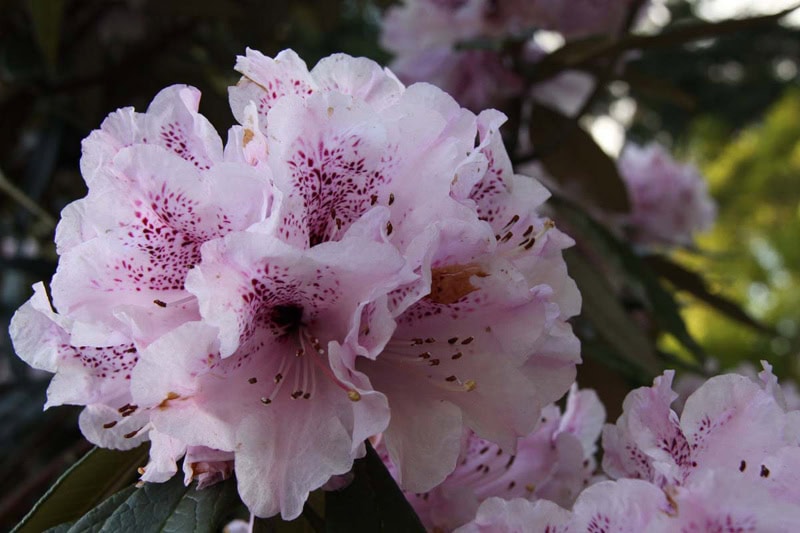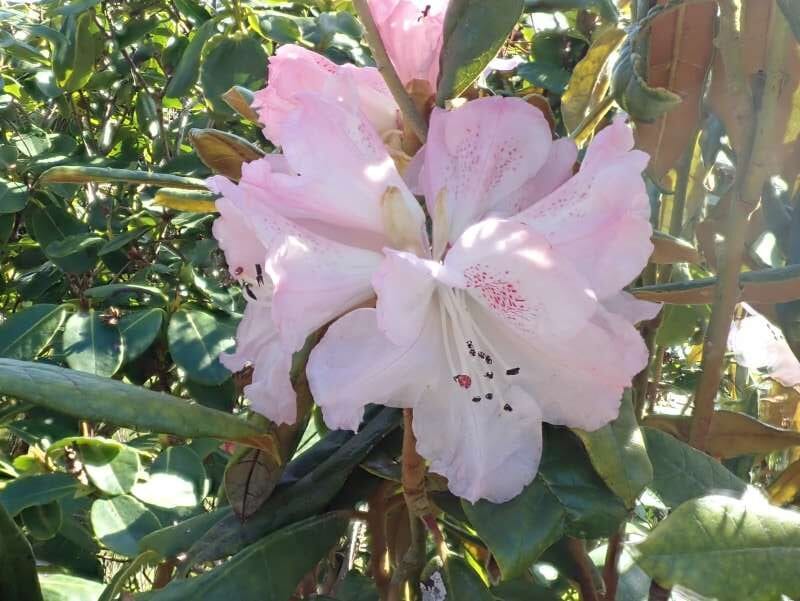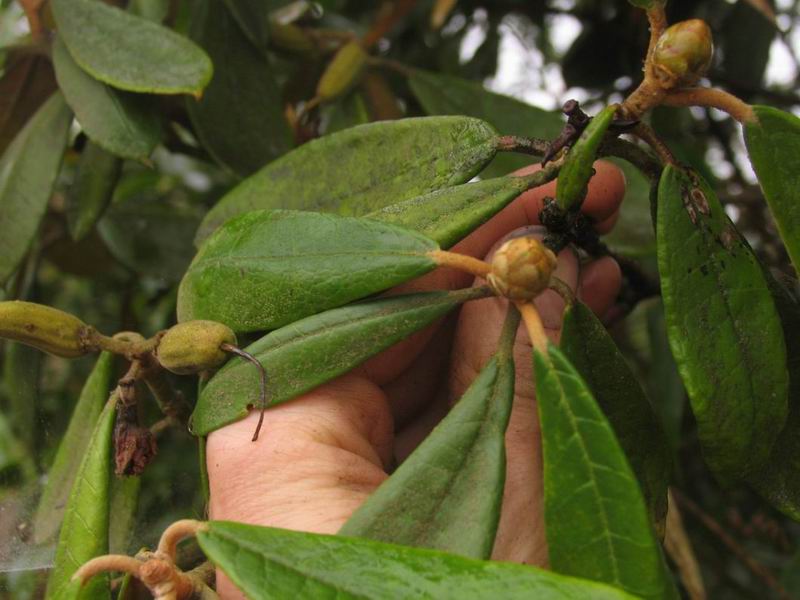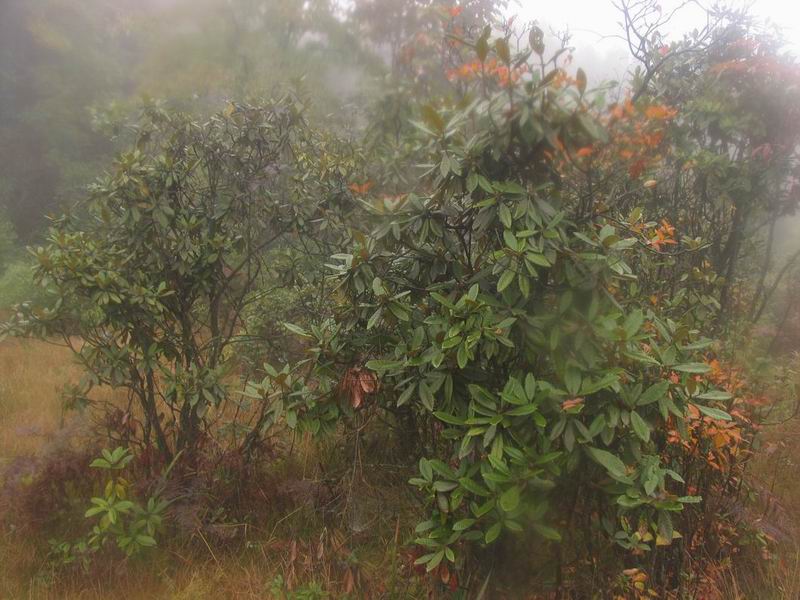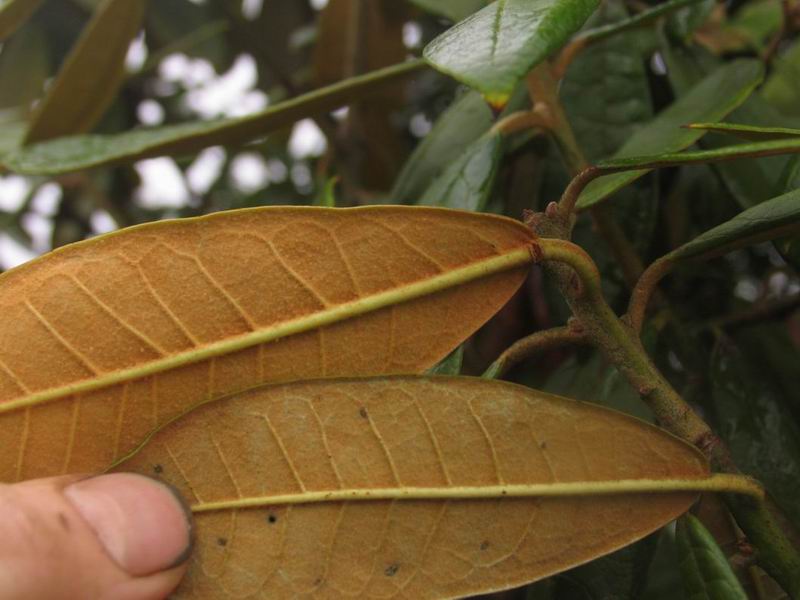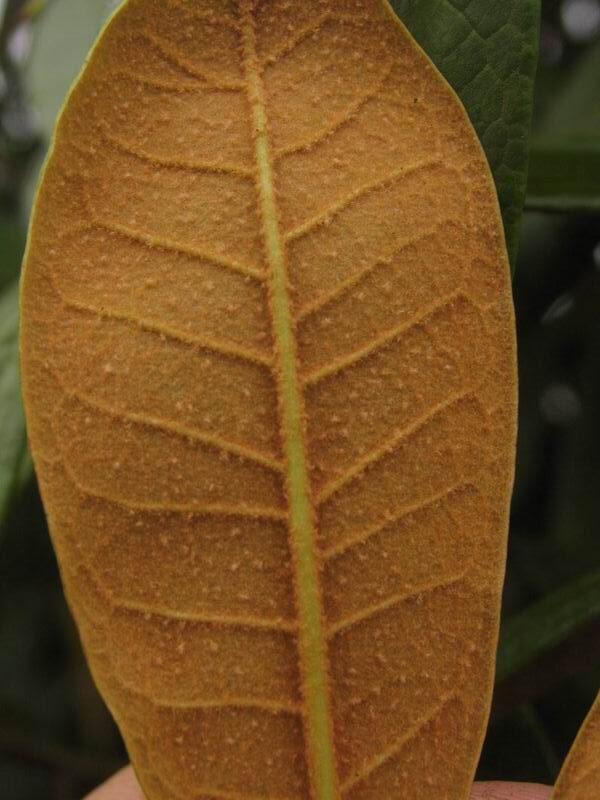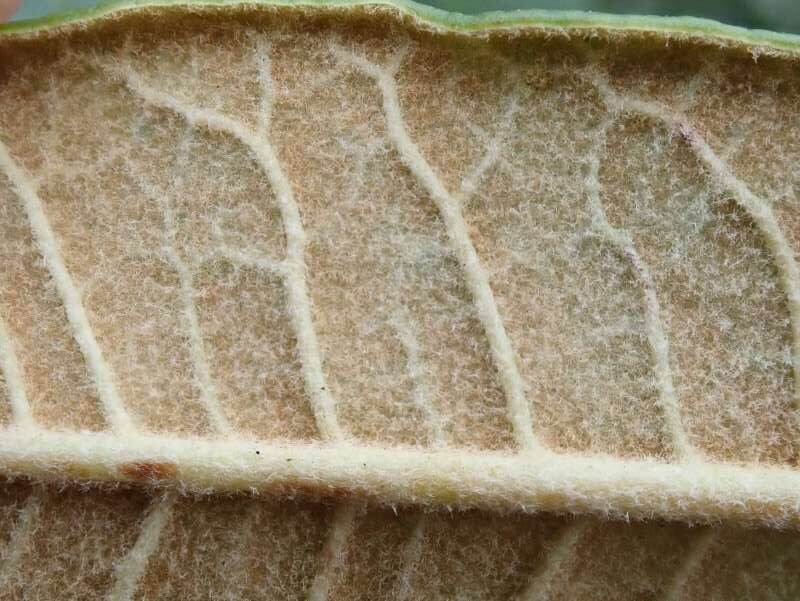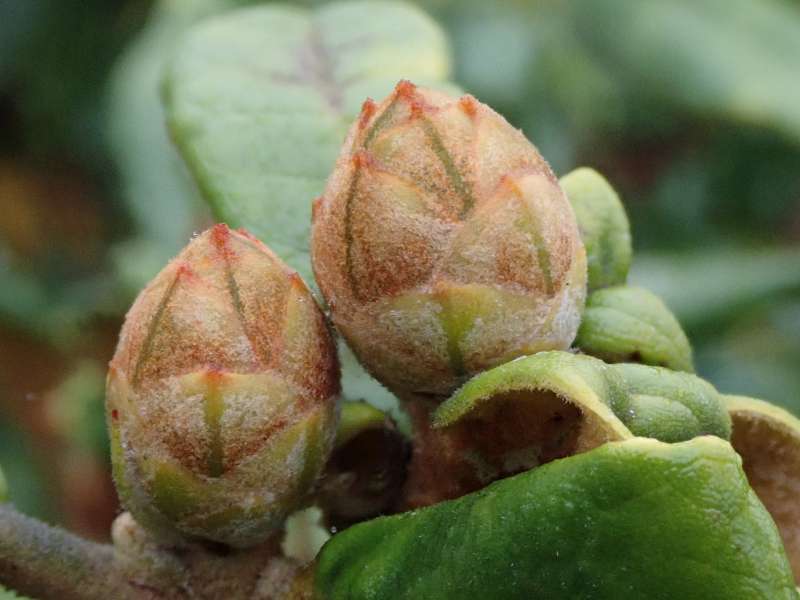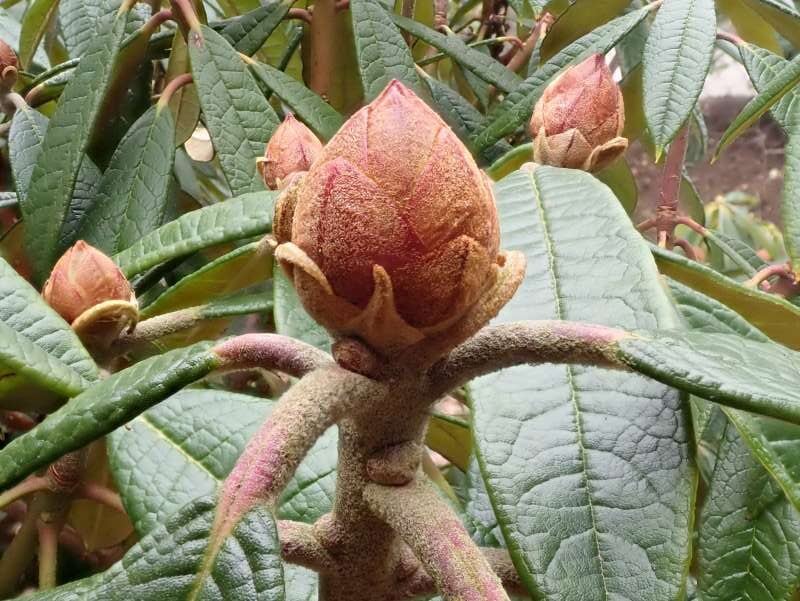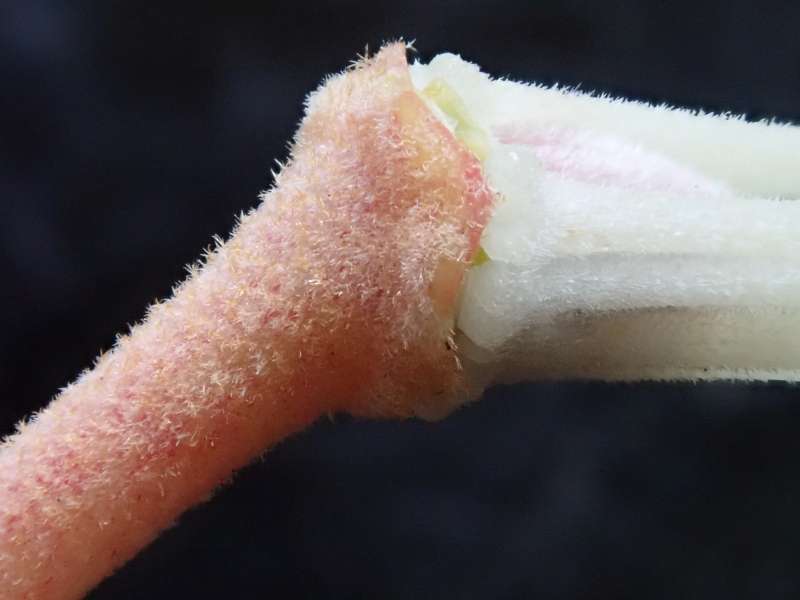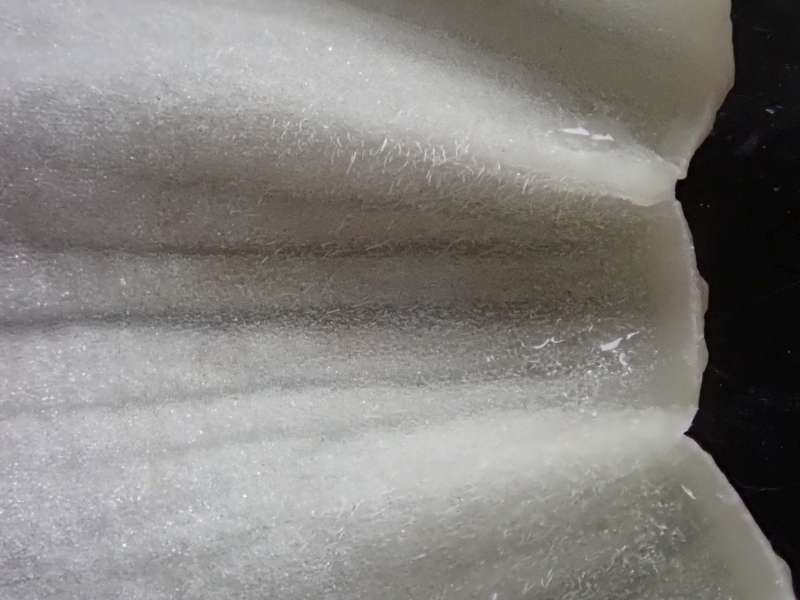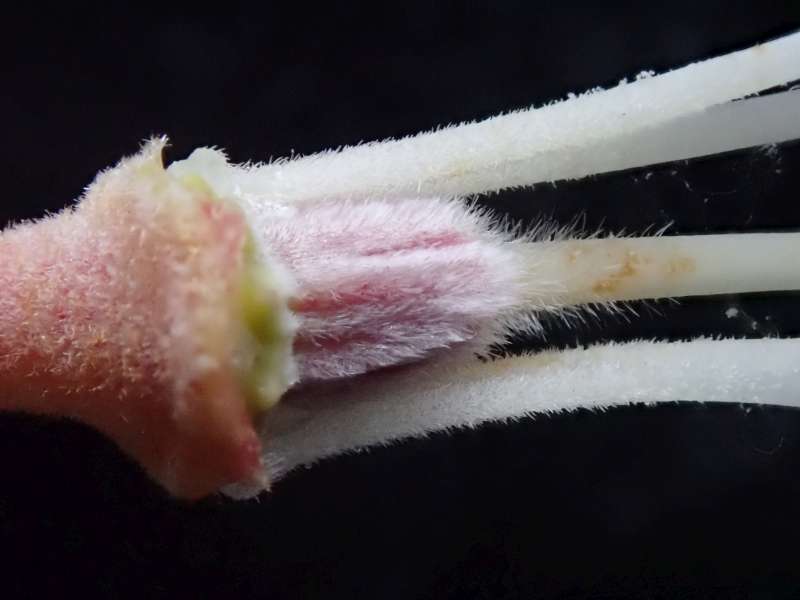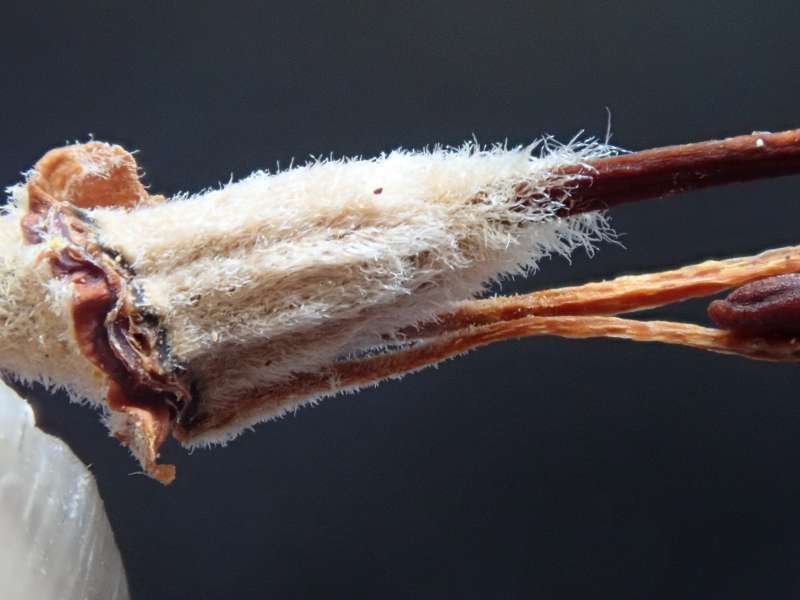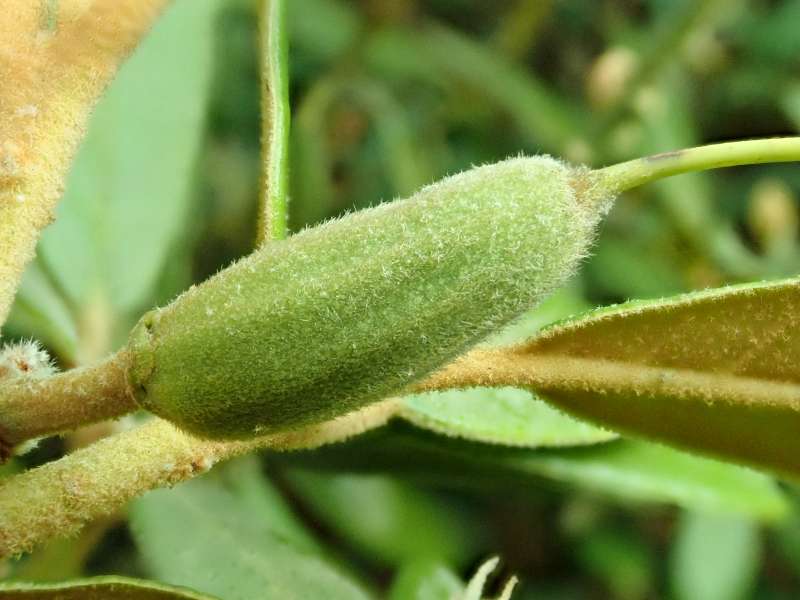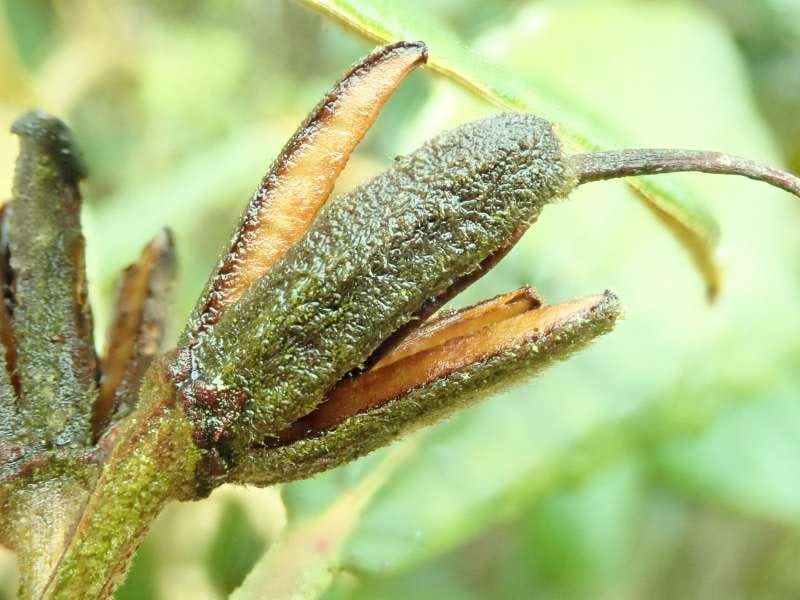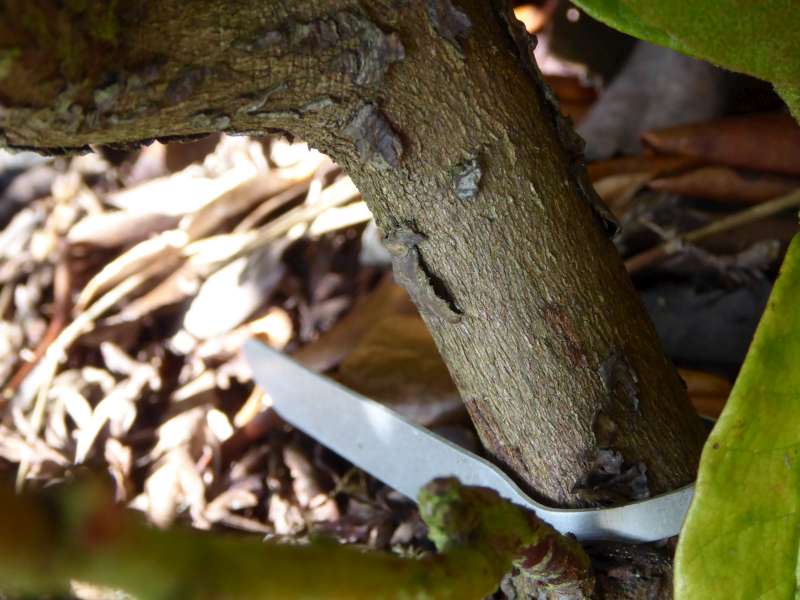Rhododendron coeloneurum
Billeder af Rhododendron coeloneurum
Beskrivelse
R. coeloneurum / (R. coeloneuron) (Argyrophylla). En form der ligger imellem R. floribundum, R. wiltonii, R. denudatum og R. rufum. Kendetegn: Tidligere introducerede planter med dette navn har været R. wiltonii (WEB). Allan Clark’s introduktioner er planter i Argyrophylla subsektionen. Vildtvoksende i Sichuan, N-Yunnan og N-Guizhou, Kina Hvis blomsterklasen er tæt og ikke løs er det en Taliensa og ikke Argyrophylla. R. coeloneurum har en mat bladplade og brunt indument, medens arter i Argyrophylla har tæt hvidt (eller pudret) til blankt (agglutineret) lysebrunt indument.
Hans Eiberg
● R. coeleneurum frø. Foto: Hans Eiberg
ARS
Flora of China
RBGE Herbarium; R. coeloneuron
R. coeloneuron
R. coeloneuron (um) is definitely an Argyrophylla and not a Taliensia in my opinion (most agree). The closely related, similar and also recently introduced R. denudatum has a flatter leaf with a paler indumentum but darker flowers a bit later in the season. This latter species is closest to R. floribundum which has a more northerly distribution, a paler indumentum and darker flowers than R. denudatum. These would all be better compared to R. argyrophyllum and not R. insigne which is quite different from most of the other species in that subsection. The original “coeloneuron” that was introduced by Berg and others was a collection from the Erlang Shan in Sichuan in the early 1990s. This is nothing more than a very fine form of R. wiltonii (as was obvious in Harold’s image) but was mistakenly distributed for many years as R. coeloneuron. It is a bit different from the Omei Shan form of R. wiltonii which is the form most often seen in cultivation. The Erlang Shan form is by far the superior plant, we now have about 20 planted in a new section of the garden here at the RSBG, all different clones from wc seed. Beautiful!
Steve Hootman
Steve Hootman Youtube

